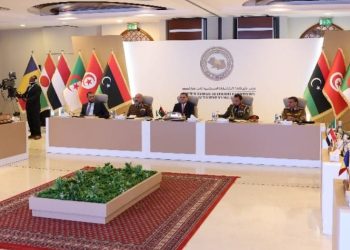By Libya Herald staff.
Tripoli, 26 August 2014:
Senior American officials have said they were surprised to learn that the . . .[restrict]Emirates and Egypt attacked positions held by Misratan-led militias over the past week. They said the US had been given no prior warning,
The New York Times reported that Washington had felt left on the sidelines by the move. One official was quoted as saying: “We don’t see this as constructive at all.”
It is alleged that the UAE, which possesses one of the most formidable air forces within the region, provided the necessary aircraft and pilots with Egypt offering their bases for the bombings.
The Emirates have not commented on the two attacks, both of which took place over the past week. Egypt has flatly denied any involvement. Yesterday, Egyptian officials accused the Americans of lying and of trying to drag Egypt into the Libyan crisis.
Following the airstrikes, Libya Dawn immediately accused the UAE and Egypt of involvement. It was the first time the Emirates had been implicated in such attacks. Senior Libyan Officials previously stated they believed either Algeria or Egypt to be involved.
Egypt, Chad, Tunisia, Algeria and Sudan have met in Cairo to discuss ways in which the country’s neighbours can put an end to violence in Libya. They fear the current instability could spill over into the wider region. Delegates have already commented that any further escalation could prompt a foreign intervention.
The House of Representatives, based in Tobruk, earlier this month requested a foreign intervention. The request was rejected by the Arab League and by many bodies in Libya.
Similarly France, Germany, Italy, the UK and the US have said that they believe that outside interference in Libya would only exacerbate the current divisions within the country and undermine Libya’s democratic transition.
The claim that Egypt and the Emirates were behind the recent attacks has prompted some to say Libya would become a full-scale proxy war-ground for outside powers, as was Lebanon, in this case between Qatar on the one hand and Egypt and the Emirates on the other. All have backed militias within Libya.
However, the airstrikes appear to have had little effect on the fighting on the ground. The Misratan-led, Islamist-leaning militias against whom the bombing campaigns were directed, were still able to take control of Tripoli Airport, despite the short-lived interventions.
[/restrict]








